China-Indonesia joint lab on HTGR launched in Beijing
2018-09-14
The launching ceremony of the China-Indonesia Joint Laboratory on High-Temperature Gas-Cooled Reactor took place in Beijing on Aug 29.
The joint lab project is conducted by Tsinghua University's Institute of Nuclear and New Energy Technology and the Indonesian National Nuclear Energy Agency, with both signing a three-year work agreement on the same day.
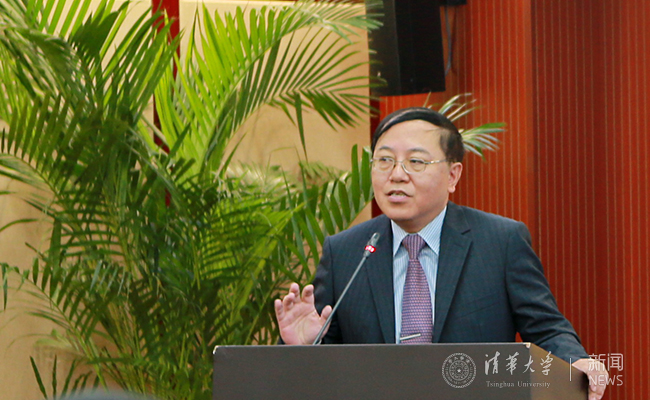
Professor Zhang Zuoyi, director of INET, Tsinghua University, speaks at the launching ceremony on Aug 29.
"The Laboratory will serve as a platform for people exchange, technology cooperation and talent cultivation between China and Indonesia," said Professor Zhang Zuoyi, head of the Institute of Nuclear and New Energy Technology at Tsinghua University.
Combining efforts from both sides, we hope the laboratory will witness one breakthrough after another and boost the development of high-temperature gas cooled reactor technologies in Asia and all around the world, he added.
High-temperature gas-cooled reactor is a good option for Indonesia as it has more than 13,000 islands with loosely deployed power grids, said Professor Djarot Sulistio Wisnubroto, president of the Indonesian National Nuclear Energy Agency. The inherent safety feature makes it easier to be accepted by the public, so that Indonesia considers the high-temperature gas-cooled reactor one of the technologies to develop nuclear energy.
"It's an honor to join hands with Tsinghua university and we hope the laboratory project will help Indonesia achieve success in high-temperature gas-cooled reactor technology development," he said.
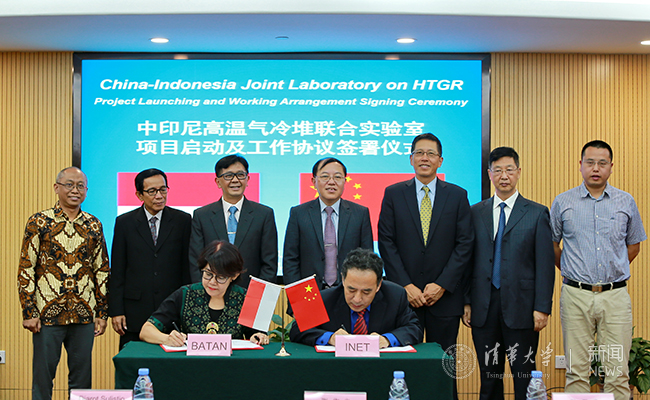
Professor Sun Yuliang (R), deputy director of INET, Tsinghua University, and Geni Rina Sunaryo (L), director of the Reactor Technology and Security Center, the Indonesian National Nuclear Energy Agency, sign the three-year work agreement in Beijing on Aug 29.
According to a three-year work agreement signed after the launching ceremony, the joint lab will focus on application of high-temperature gas-cooled reactor technologies, necessary adjustments under local laws and regulations, simulation methods as well as IP localization.
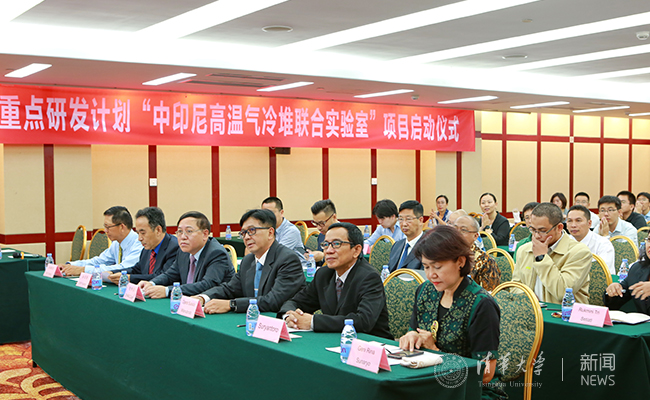
Over 40 honored guests, including Rukmini Tri Setiati, social culture counsellor from the Indonesian Embassy in China, representatives from China National Nuclear Corporation, attend the launching ceremony
Shortly after the signing ceremony was a three-day seminar where attendants discussed about a variety of topics. including institution status, research progress, current strategy, Tsinghua University's previous HTGR projects (with Germany), the Indonesian government's nuclear policies and detailed cooperation arrangements.
Confident about the laboratory's potential, researchers from both sides were looking forward to meet for a second seminar in Indonesia, November.
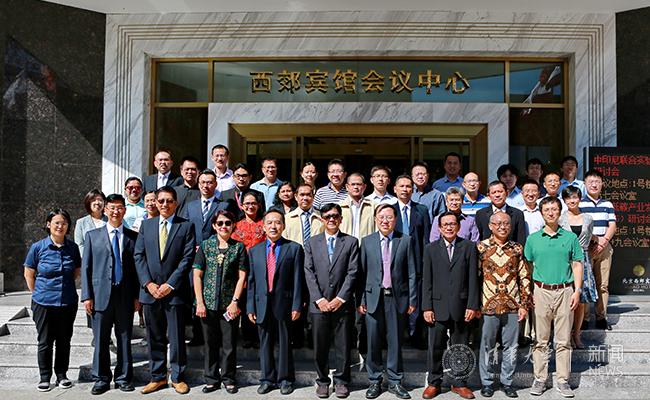
Researchers and guests from China and Indonesia pose for a group photo after the seminar in Beijing.

 Facebook
Facebook WeiXin
WeiXin CONTACT US
CONTACT US






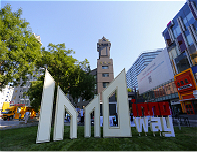



 Tsinghua Holdings works hard for better ecological environment
Tsinghua Holdings works hard for better ecological environment